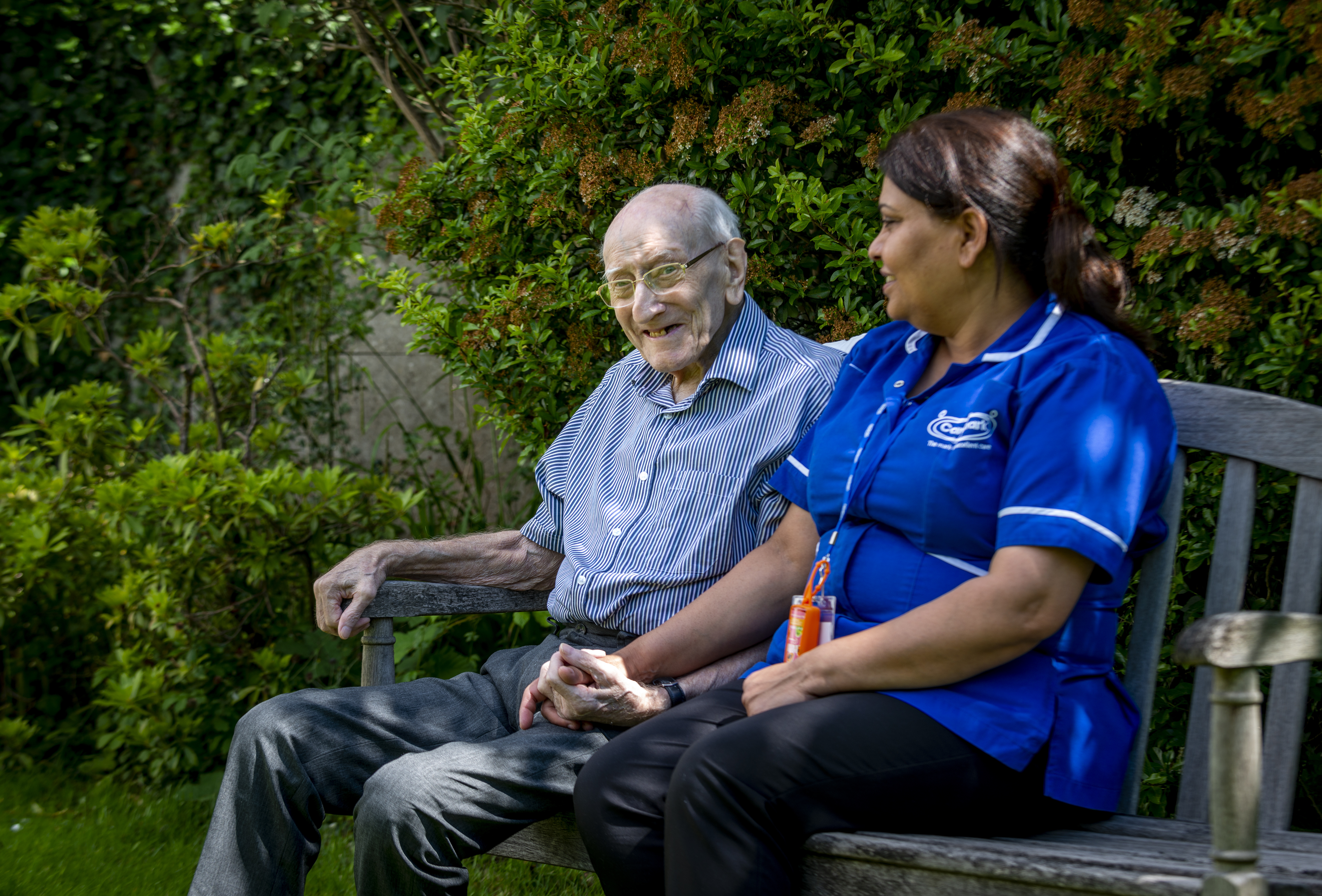It goes without saying, but it’s important that we’re happy and healthy in all stages of life. However, it isn’t always easy to notice when older family members and friends need some extra support with their mental health. Understanding a loved one’s mental wellbeing will help ensure they get the right home care.
If you’re worried about an older person, here are our tips on identifying the signs of depression.
What is depression?
Depression is a mood disorder characterised by symptoms such as feelings of sadness or emptiness, angry outbursts and irritability, loss of interest or pleasure in normal activities, sleep disturbances, tiredness, unexplained physical problems, and more.
It’s crucial to note that depression can still seem different to these symptoms. Just because someone appears fine or happy, doesn’t mean they feel this way on the inside.
Noticing depression
Depression can be particularly tricky to notice in older people if they live alone or far away from other family members. When you’re balancing work, raising children, and other commitments, it’s easy to lose track of time. It’s a great idea to schedule regular check-ins with your older family members to ensure they feel connected and supported.
This communication will also make it easier to pick up on any changes in mood or references to depression symptoms that would otherwise go unnoticed. You’ll be able to start a conversation about their mental wellbeing and navigate any periods of low mood together.
Older adults and depression
While older life can come with unique stress points — like an increased susceptibility to health issues, big life changes, and financial concerns — depression is not considered to be a “normal” part of ageing in any sense of the word.
It’s good to be aware of the symptoms of depression in older people. Here are some signs to watch out for…
Symptoms depression in elderly people
Symptoms of depression can be different, and sometimes less obvious, in older people.
Still, common symptoms include:
- Memory problems
- Personality changes
- Physical aches and pains
- Fatigue
- Poor appetite
- Insomnia or excess sleep
- Loss of interest in sex
- Preferring to stay at home rather than socialise with friends
- Suicidal thinking or feelings (this generally affects more men than women)
- Loss of self worth
- Increased use of alcohol or other drugs
- Neglecting personal care
It’s important to seek professional help and advice if you realise that you yourself are suffering from depression. Likewise, if you notice that an elderly loved one or neighbour is showing signs of depression, it’s a wise idea to initiate a chat with them about their wellbeing or encourage them to see a doctor, mental health professional, or faith leader.
Ways to help elderly relatives manage their mood
There are numerous ways to support elderly individuals who are experiencing depression and low mood.
Remind them that it’s ok to ask for help — from you or a GP. You can also encourage them to stay connected with family and friends, keep up with hobbies and interests, and eat properly and stay active.
This depression in older adults article from the Royal College of Psychiatrists might be a useful resource.
When a family member is experiencing depression and they are accessing home care services, it can also be beneficial to let relevant staff know. They can help with potential issues like loneliness. They can also provide assistance with social outings, generally keeping your loved one company, and facilitating their hobbies.
If you think your family member is struggling with social isolation and could benefit from some at-home support, consider looking into companionship care services.
Likewise, when struggling with depression, it’s easy to neglect aspects of your personal care. If you think your loved one might need a hand with some aspects of their personal care or domestic chores, it’s important to ensure either a family member, friend, or home carer is providing them the regular support they need.
Medical conditions and depression
While depression can occur on its own, it can sometimes be triggered by a medical condition or worsen as a side effect of certain medications.
You should also be aware that the symptoms of depression are similar to some early signs of dementia, like memory problems, low motivation, and slow movements and speech. If you’re concerned about the cognitive health of a family member (whether any decline is caused by dementia or depression), it is important to make an appointment with a doctor as soon as possible.
Caremark: elder care services in Ireland
At Caremark, we provide friendly and professional home care services in Ireland. From dementia home care services to general home care, our professionals can help elderly individuals live happy and healthy lives — whatever that means for them.
We offer extensive care provision for the elderly. Take a look at our companionship care, live-in care, respite care, night care, plus specialist care services.
Get in touch to chat to us about how we can help your family member. Call us on 1800 844 414 or email us at info@caremark.ie.
*This article does not contain medical advice. If you are concerned about any issues regarding mental or physical health, seek professional medical advice.

